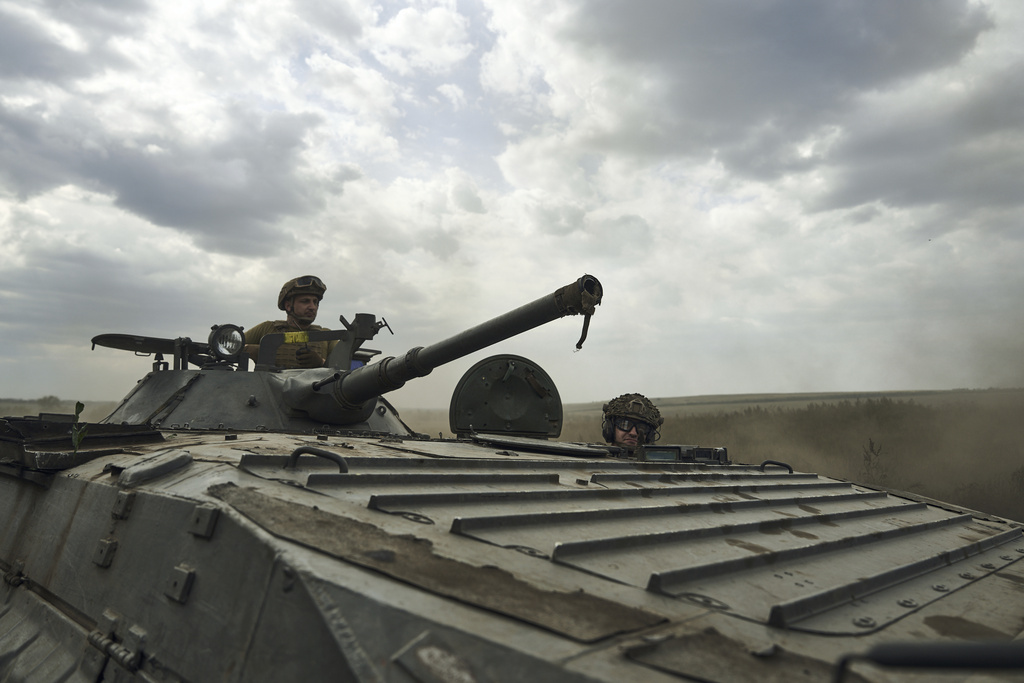
The United States has announced a new $600m security assistance package for Ukraine that includes demolition munitions, mine-clearing equipment, artillery shells and other weaponry, just a day after pledging $1bn in new military and humanitarian aid for Kyiv.
Announced on Thursday, the $600m follows after US Secretary of State Antony Blinken announced during a visit to Ukraine on Wednesday that Washington would provide $1bn in military and humanitarian aid for Kyiv, including depleted uranium ammunition for US-made M1 Abrams tanks that are expected to be delivered to Ukraine later this year.
The latest $600m will “support Ukraine’s battlefield needs” and demonstrate “unwavering US support for Ukraine”, the Pentagon said in a statement on Thursday.
But the military assistance will not immediately arrive on the battlefield, as it falls under the Ukraine Security Assistance Initiative (USAI) through which Washington procures equipment from the defence industry or partners rather than drawing from US military stocks.
The back-to-back military aid announcements come as US President Joe Biden’s administration works to show its continued support for Ukraine’s three-month-old counteroffensive as troops try to break through Russian defences and clear vast minefields.
Some allies have quietly expressed concerns about the slow-moving offensive, while others say Ukraine has made some progress and has successfully used air defences to knock down Russian missiles.
NATO chief Jens Stoltenberg said on Thursday that Ukraine’s counteroffensive was progressing slower than anticipated, but Kyiv’s forces were taking ground from Russian forces each day.
“The Ukrainians are gradually gaining ground and it proves the importance of our support and also our ability and willingness to continue the support,” Stoltenberg told a committee meeting of the European Parliament in Brussels.
“This is heavy fighting, difficult fighting, but they have been able to breach the defensive lines of the Russian forces,” he said.
“The Russian army used to be the second strongest in the world, and now the Russian army is the second strongest in Ukraine. That’s quite impressive,” he added.
Trent Maul, director of analysis for the US Defense Intelligence Agency, told the Economist magazine in a rare interview on Wednesday that there was a “realistic possibility” that Ukrainian forces could push through the entire Russian front line in southern Ukraine by the end of the year.
Russian defensive lines yet to be encountered could also be weaker than anticipated, Maul said, and may not pose as much of a challenge as the first line of Russian defence that has slowed the progress of the Ukrainian counteroffensive.
Washington, DC-based think tank, the Institute for the Study of War (ISW), said on Thursday that Ukrainian forces were making “tactical gains” and the counteroffensive may achieve “operational success” this year, though there was still hard fighting ahead.
“Subsequent series of Russian defensive positions still pose significant challenges for Ukrainian forces and may in sections be strongly held,” the ISW said.
The subsequent series of Russian defensive positions may be weaker, less mined, and less manned than the defensive layer that Ukrainian forces have breached. However, Russian defenses are not uniform across the front in southern #Ukraine… (1/3) https://t.co/2aLXRS6tO7 pic.twitter.com/A97EpDHhVS
— ISW (@TheStudyofWar) September 8, 2023







